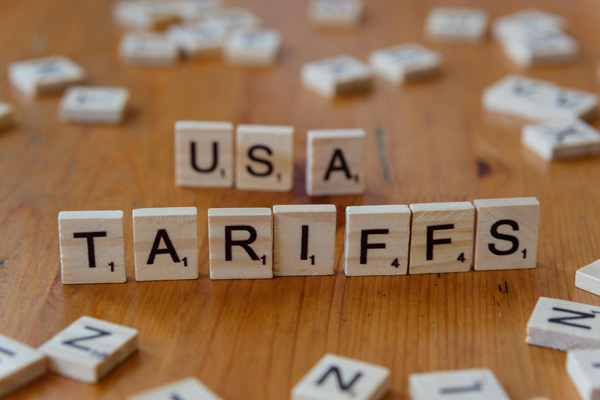Trump imposed a 90-day pause on tariffs

[A photo shows alphabet blocks saying USA tariffs, photo credit to Pexels]
On April 9, U.S. President Donald Trump officially announced a 90-day redemption period on reciprocal tariffs, offering most countries a temporary break from this disruption, except China.
Earlier, on April 2, U.S. President Donald Trump declared “Liberation Day” and announced a 10% universal tariff on all imports, citing the U.S. Declaration of Economic Independence.
He stated that this measure was intended to address what he described as longstanding unfair trade imbalances that have harmed the U.S. economy.
Along with the announcement, the White House released a detailed tariff list, outlining the increases that would affect major trade partners such as South Korea, Japan, the European Union, China, and others.
Among these countries, China bore the heaviest burden.
The U.S. increased tariffs on Chinese imports to 245%, incorporating 125% reciprocal tariffs; a tariff that two or more countries to agree to reduce or increase tariffs on each other, 20% tariff to address the fentanyl crisis and Section 301 tariffs on specific good of a range of 7.5% and 100% according to the the White house.
This act not only impacted the tariff rate, but it also affected the overall stock market, bond shares, and medical care that the U.S. and other countries traded.
China responded to the US with a 125% increase, up from the previous rate of 84%, and further imposed export restrictions, including critical minerals exported to the U.S.
Prior to this so-called “tariff war”, China was one of the U.S.’s top five trade partners, ranking fourth in purchasing goods and first in importing goods in 2022.
According to Yahoo Finance, the S&P 500 index dropped 10.5%, marking one of the largest two-day declines in the past 75 years.
Before the U.S. imposed high tariffs on China, China's GDP had grown by 5.4% over the past three months in 2025.
Trump explained his rationale for the 90-redemption period by stating, "After 75 countries have called the representatives of the United States, I have authorized a 90-day pause."
Of course, this pause ostracizes China.
Following this announcement, global stock markets immediately began to recover, and the S&P 500 rebounded 9.5% again, regaining much of its losses from April 2.
Not only the U.S., but also other countries experienced a boost in their GDP as uncertainty eased.
Economists now argue that the U.S. tariffs might decrease GDP growth.
Some experts warned about the instability of the U.S. Economy, while other economists supported Trump’s action; opinions were evenly divided.
The US Treasury Secretary Scott Bessent said, “ So, every country in the world who wants to come and negotiate, we are willing to hear you, we're going to go down to a 0% baseline tariffs for them, and China will be raised to 25% due to their insistence of escalation.
In the CBS interview, Bessnet further added, “China is the most imbalanced economy in the history of the modern world, and they are the biggest source of US trade problems”.
Still, concerns persist about how the next 90 days could redefine the economy, not just the U.S. economy but the global economy as a whole.

- Seowoo Cho / Grade 9
- Isaac Bear Early College High School

![THE HERALD STUDENT REPORTERS [US]](/assets/images/logo_student_us.png)
![THE HERALD STUDENT REPORTERS [Canada]](/assets/images/logo_student_ca.png)
